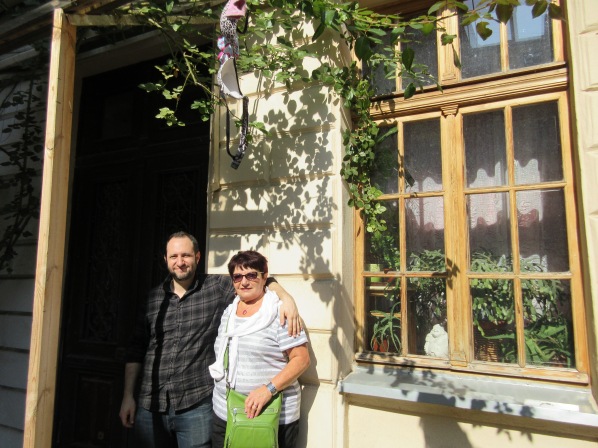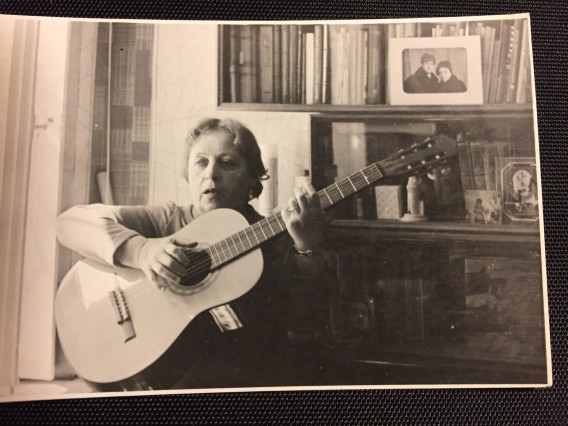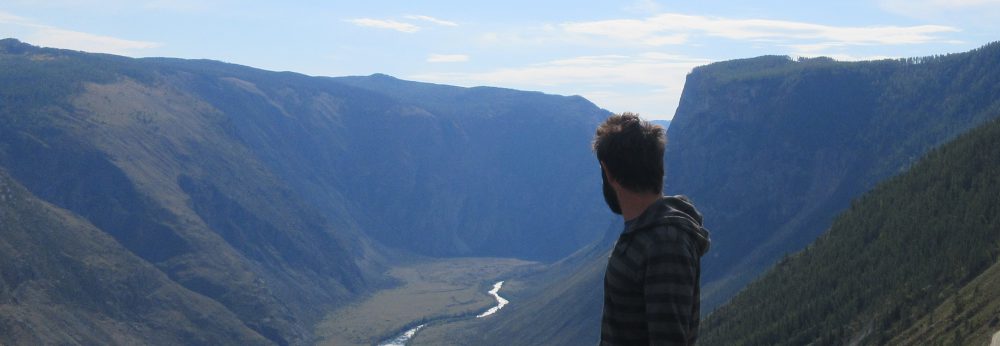Four nights ago, on the 7th night of Passover, I found myself in yet another building in which one of my recent ancestors lived here in Odessa. Synchronicity, once again, led me there.
I commemorated the 7th night, the night that the Israelites crossed the Red Sea from bondage to freedom, at the Chabad Synagogue of Odessa. I was about to make my way back to my host’s apartment after the service was over, when a congregation member I met a few months back came up to me outside and invited me to go make kiddush with him and his friends, a couple of Israelis working and living in Odessa. One of the Israelis was hosting at the apartment he and his family are renting here. I accepted the invitation.
Along the way, I inquired as to where we were heading. I wanted to know if it was on my way home or a detour. They made some joke about not worrying, that they were not leading to me danger. Trust them was the message; I’m going where I need to go and that’s all I need to know for now. I let go of my desire to know and followed the flow. I stopped paying attention to which streets we were turning onto as I put my trust in the moment and immersed in conversation with them. The topic of course came to what I was doing in Odessa and my ancestral journey.
As I told them pieces of my story, we walked through a gate and into a courtyard. I paused in my tracks as I recognized the courtyard.
“Are we at Zhukovoskovo 4?” I asked.
“Yes,” our host replied.
“This is where my great-aunt, Maria, lived with her son Ernest. My mother brought me, my brother, and my cousin (Maria’s grandson) here when they came for the family history tour of Odessa.”

My cousin (Maria’s grandson) and my mother (Maria’s niece) in the courtyard in front of Maria’s old apartment
Their eyes widened. “You’re kidding,” one of them exclaimed.
Zhokovoskovo 4 is a complex of several apartment buildings. After we rejoiced in the synchronicity (dayenu!) our host led us to his building. It was the exact same building my great-aunt lived in. I only got to see it from the outside when I was here with my family. Our host of course had the code to get into the building, and in we went.
Finding myself on Pesach in the same building that Maria had lived in was enough. Our host didn’t live in the same apartment. Maria lived on the ground floor. His apartment was on the top floor. As we passed Maria’s old apartment, I paused at the door. The hour was too late to be knocking and explaining and asking if I could come in. I imagined Maria walking through that door in her young adult years, before I ever knew her. I sent her greetings and wished her a chag sameach. Several floors above, during the meal after kiddush, we made a l’chaim in honor of her and the life she lived and the life she helped make possible for the rest of the family.
Maria and her son, Ernest, were the first in our family to leave the Soviet Union and cross the sea to what was the modern promised land for a great many Soviet Jews: the U.S. (There were a couple relatives who left in the early 1900’s, but the family completely lost contact and connection with them as maintaining communication was dangerous. I’m trying to find info about them and their families.)
Ernest was our Nachshon. In a prominent rabbinical Midrash about the moment of the parting of the Red Sea, the story goes that the seas did not part until the leader of the Judah tribe, Nachson, walked into the sea and kept walking until the water rose past his nose and he could no longer breath. Only then did the seas part. It was Nachshon’s faith that opened the path to freedom for the Israelites.
Ernest, with his mother Maria, applied for emigration out of the Soviet Union at a time when doing so was a great personal risk, especially for Jews. Most were denied exit visas and were obligatorily fired from their jobs for what was seen as grave betrayal of their mother country. (They were labeled “Refusniks“).They were then denied almost all other jobs except in some cases the most menial. If they weren’t able to find even menial employment, they were arrested and imprisoned for “parasitism”. Despite the risk of drowning in that sea of Soviet oppression, Ernest applied for emigration and pulled as many strings as he could to make it happen. Miracles ensued and the sea parted for him and Maria. His faith and fortitude showed my parents that they too could cross the sea to freedom, which they did (still at great personal risk) a few years later.
Maria was our Miriam. (Interestingly, the name Maria is derived from the Hebrew name Miriam.) The biblical prophetess Miriam, the elder sister of Moses and Aaron, led the Israelite women in song and dance of praise after they crossed the sea and the seas closed back up on the pursuing Egyptian army.
My great-aunt Maria too loved to sing. She carried songs and stories from the old country across that great sea that she and Ernest crossed, and reminded us of our own family’s redemption out of oppression and persecution.

Maria in her old apartment in Odessa
Maria was our wise elder. She lived through unimaginable times. She was born in 1913, lived through the First World War, the Russian Revolution and subsequent Russian Civil War, the Holodomor (Stalin’s forced famine that killed millions in Ukraine), Stalin’s Great Purges, The Second World War, and decades of persecution of the Soviet Jewry.
Her husband, Yefim, was drafted into mandatory military service before the Second World War crossed into the Soviet Union’s borders. Maria was left to care for their young son, only three years old at the time, on her own. They believed that Yefim would only be gone a couple years, that the war wouldn’t come into Soviet territory, that he would be back after his mandatory peace-time conscription. Then the Nazis invaded. When Maria heard the news that the war came to their door and that all able-bodied service men were heading to the front, she fell to the ground and fainted.
She hid in bomb shelters with her son during the blitzkrieg of Moscow (where they were living at the time). She barely caught the last train out of Moscow after finding the administration office, where they needed to get their evacuation papers stamped with an official seal of approval, already abandoned. She frantically searched for and found the stamp she needed, filled out and stamped her papers herself, and ran as fast as she could to the last train with her son.
They were evacuated to Tashkent, Uzbekistan. Everyone not fighting was put to work for the war effort. Food was scarce for the refugees as the priority was placed on feeding the soldiers. Maria later recalled how she and other mothers (including my grandmother who was with her in Tashkent) saved their meager scraps of bread to feed the children when they would wake up crying and screaming in the middle of the night due to hunger.
Maria and Ernest made their way back to Moscow after the tide of war shifted and the city was safe. Maria’s husband, Ernest’s father, Yefim, never made it back from the front.
Some years later, Maria, with Ernest, moved back to her home city of Odessa. After a couple years, they settled into the apartment building that I found myself in making kiddush on the 7th night of Passover, the night of the crossing of the Red Sea.
Maria worked as an English teacher in the Soviet Union. Her knowledge of English helped our immigrant family adapt and find comfort in a strange new land, the way Miriam’s qualities helped the Israelites find water in the wilderness on the other side of the sea.
In her youth Maria was a child actress in the Odessa Yiddish Theater her parents were actors in. She maintained that flamboyant, bright energy and naturally, dramatic personality of an actress into her elder years. Yes she also at times displayed the classically stereotypical worries and anxiety of a Jewish grandmother. It would be surprising if she wasn’t anxious after all she lived through. But overall, I remember her (I knew her in her elder years) for her cheerful vitality, her bright smiles, and her love.

Maria in her apartment in Odessa
She had immense love for and devotion to her family. Despite all the hardship and pain she lived through, she showed us how to rejoice in the lives we have and to praise the miracles that delivered us out of persecution. How appropriate that I found myself in our Miriam’s old building that night.

What an incredibly beautiful and moving story, Danny. I got chills reading it. Dayenu!
LikeLike